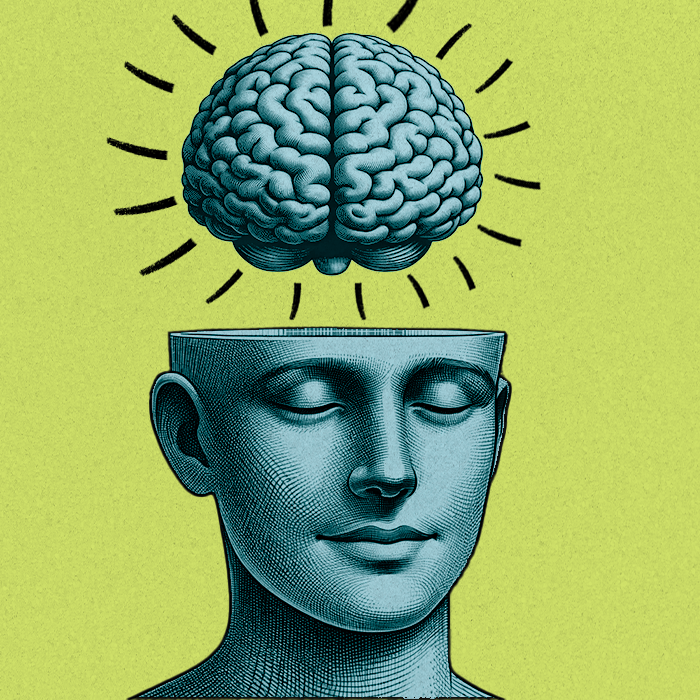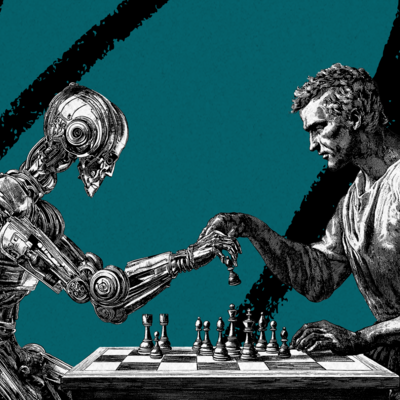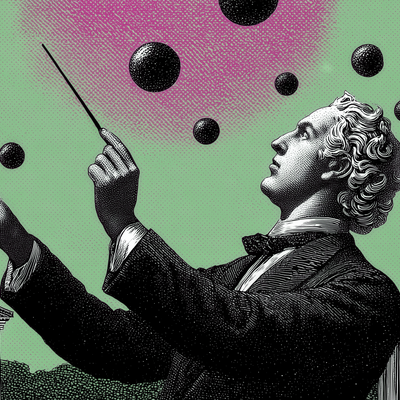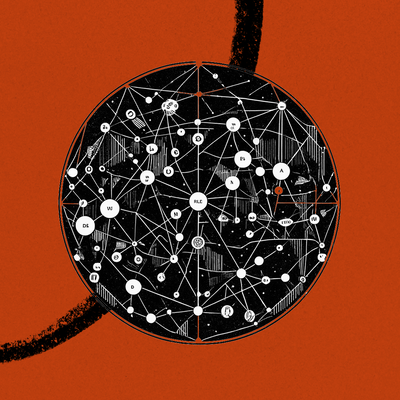
I remember when I first saw GPT-3 output writing: that line of letters hammered out one by one, rolling horizontally across the screen in its distinctive staccato. It struck both wonder and terror into my heart.
I felt ecstatic that computers could finally talk back to me. But I also felt a heavy sense of dread. I’m a writer—what would happen to me?
We’ve all had this experience with AI over the last year and a half. It is an emotional rollercoaster. It feels like it threatens our conception of ourselves.
We’ve long defined the difference between humans and animals by our ability to think. Aristotle wrote: “The life of the intellect is the best and pleasantest for man, for the intellect more than anything else is man; therefore, a life guided by intellect is the best for man.”
Two thousand years later, the playwright and short story author Anton Chekhov agreed in his novella, Ward No. 6: “Intellect draws a sharp line between the animals and man, [and] suggests the divinity of the latter.”
The primacy of thinking and the intellect as the feature by which we define ourselves has become even more salient as we’ve moved from an economy driven by industrial labor into one driven by knowledge. Indeed, if you’re reading this, you probably put a lot of stock into what you know. After all, that’s what knowledge work is all about. If we define ourselves and our value this way, it’s no wonder LLMs seem scary.
If AI can now write, and, worse, think, what’s left that makes humans unique?
I think LLMs will change knowledge work. In doing so, they’ll change how we think of ourselves, and which characteristics we deem uniquely human. But these days I’m not particularly scared. In fact, I’m mostly filled with excitement.
My sense of self has changed—and that’s a good thing. ChatGPT has made me see my intellect and role in the creative process differently than I did before. It doesn’t replace me; it just changes what I do. It’s possible to achieve this feeling of excitement by 1) getting a clearer conception of what LLMs actually do and don’t do, and 2) expanding your view of what you are and what you are capable of.
Let’s talk about what that looks like. To start, we have to understand what the intellect is.
What is the intellect?
For the purposes of this article, the intellect is the thing that humans uniquely have that animals don’t. This is a fuzzy definition, by design. It reflects what feels threatened by AI: that which makes us human.
In reality, the intellect is a gigantic combination of brain processes that look like thinking. Thinking, the intellect, the mind—these are all different processes that we lump under a single heading. That’s why it’s easier to define it via negativa, by what it is not—it’s whatever animals don’t do. (We now know that animals do have thinking processes that look a lot like what we might call intellect, but that hasn’t filtered into our popular conceptions of self. Read Frans de Waal’s classic book, Are We Smart Enough to Know How Smart Animals Are?, for an excellent overview of animal intelligence.)
Our fuzzy definition of the intellect is why our first encounter with ChatGPT and its ilk can be so terrifying. It touches a lightning rod within us. For millennia we’ve set ourselves apart by a strange, amorphous, many-dimensional thing called intelligence—and suddenly there is something encroaching on our turf. Because it can do some of the things we associate with the intellect, we feel both excited, because we’re no longer alone, and threatened—because we might be replaceable.
In order to regain our sense of self and place in the world, we need to redefine what we mean by “intellect.” We need to create a new sense of separation between what humans do and what AI can do. We need to redefine “intellect” so as to make it work in an AI-driven world.
Fortunately, we’ve done this before, and technology can help.
Psychology is a branch of science that is full of concepts that are fuzzy in the same way the “intellect” is. Take depression and bi-polar disorder. Neither is detected by a blood test, or even has a consistent set of symptoms. Instead, they’re characterized as syndromes: a set of often associated symptoms that can vary from case to case.
The problem is that there are significant overlaps between depression and bipolar disorder that can both manifest as low mood. As late as the 1960s, depression and bipolar disorder were lumped together under a single heading and understood to have a similar underlying cause. But it turns out that technology—specifically, the discovery of the drug lithium—was the key ingredient that we needed to pull them apart.
It all started with guinea pigs.
Pharmacological dissection of mental illness
The Only Subscription
You Need to
Stay at the
Edge of AI
The essential toolkit for those shaping the future
"This might be the best value you
can get from an AI subscription."
- Jay S.
Join 100,000+ leaders, builders, and innovators

Email address
Already have an account? Sign in
What is included in a subscription?
Daily insights from AI pioneers + early access to powerful AI tools










Comments
Don't have an account? Sign up!
Just what we need (& even made me laugh out loud at one point)
@jtowers349 glad it made you smile :)
Enjoy your posts - especially those that share experiences using GPT yourself and with others. Thanks
@Dat2023 thanks David! more coming soon :)
I personally love to think, muse, and reflect. Thank you for inspiring us to continue thinking deeply!
@rledesma115 so glad!! of course :) keep at it!
Great post, thanks / new subscriber. Very much aligned with the principles we are baking into our product.
@jonathanrefound thanks jonathan! welcome! glad to see it's aligned with what you're building
it is really insghitfull and thought provoking . thank you for sharing
@yahli really glad you think so! appreciate you commenting
Great article. My experience is that it does more than summarize. When I give it a clear direction and engage as a co-creation new things I never would have anticipated emerge. I read that the human mind is also a prediction engine. And yet we create original thought. Maybe our whole notion of intelligence needs to change, more along the lines of Bohm’s work.
@Mark_5418 thanks Mark! yeah, i think it's "summarize" in the broadest sense of the word: recombining and extending existing ideas and knowledge, rather than coming up with things that are completely new. check out the Gopnik paper I linked for more on what that means
Great read, thanks! Also reminded me how powerful summarizing is. So… did you use chatGPT’s summarizing skills for this article? How? Maybe this could be the topic for a future article :)
@rahman.rizvi i did!! i used it to summarize the manic depression story i told. super helpful :)
Perfect.
@tom.parish thanks Tom!
Excellent post Dan! You're on fire this week, your building an app podcast was really thought provoking too.
Do you have a Goodreads list or similar? Your book rsuggestions are great and I find recommendation engines sorely lacking when it comes to interesting books that don't have as many ratings.
@bjnoel w00t!! i'm trying my best, thanks so much for noticing. lots more good stuff coming soon!
I don't...but I usually tweet about what I'm reading, follow me on there! and maybe i'll do a roundup at some point soon
Thank you for sharing your thoughts and helping to inspire a more optimistic vision. I agree with your point of view. Let's keep discovering!